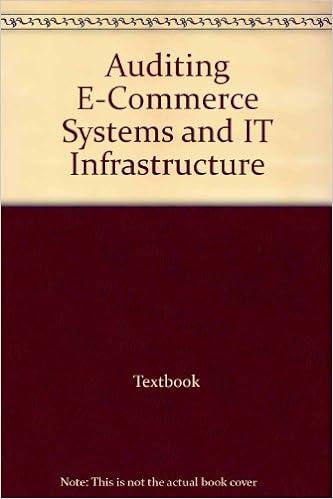

Nadia Company, a merchandising company, prepares its master budget on a quarterly basis. The following data has been assembled to assist in preparation of the master budget for the second quarter. a. As of March 31 (the end of the prior quarter), the company's balance sheet showed the following account balances: $9,000 48,000 12,600 Cash Accounts receivable Inventory Buildings and equipment (net) Accounts payable Common Stock Retained earnings Totals 214,100 18,300 190,000 75,400 $283,700 $283,700 b. Sales for March total 10,000 units. Each month's sales are expected to exceed the prior month's results by 5%. The product selling price is $25.00 per unit. c. Sales are 20% for the cash and 80% on credit. All payments on credit sales are collected in the month following the sale. The accounts receivable at March 31 are a result of March credit sales. d. Company's policy calls for a given month's ending inventory to equal 80% of the next month's expected unit sales. The March 31 inventory is 8,400 units, which complies with the policy. The purchase price is $15. e. Monthly selling and administrative expenses are budgeted as follows: salaries and wages, $7500 per month; shipping 6% of sales; advertising, $6,000 per month; other expenses, 4% of sales. Depreciation including depreciation on new assets acquired during the quarter, will be $6,000 for the quarter. Sales representatives' commissions are 12.5 % of sales and are paid in the month of the sales. The sales manager's salary will be $3,500 in April and $4,000 per month thereafter. f. Each month's ending inventory should equal 30% of the following month's cost of goods sold. g. Half a month's inventory purchases are paid in the month of purchase and half in the following month. h. Equipment purchases during the quarter will be as follows: April, $11,500; and May, $3,000. 1. Dividends totaling $3,500 will be declared and paid in June. k. No cash payment for income taxes are to be made during the second calendar quarter. Income taxes will be assessed at 35% for the quarter. 1. Management wants to maintain a minimum cash balance of $8,000. The company has an agreement with a local bank that allows the company to borrow in increments of $1,000 at the beginning of each month, up to a total balance of $20,000. The interest rate of these loans is 1% per month, and for simplicity, we will assume that the interest is not compounded. The company would as far as it is able, repay the loan plus accumulated interest at the end of the quarter. Required: Using the above data, complete the following statements and schedules for the second quarter. You must use the workbook that has been provided and create formulas where applicable. 1. Sales budget 2. Purchases budget 3. Selling expense budget 4. General and administrative expense budget 5. Expected cash receipts from customers 6. Expected cash payments for purchases 7. Cash budget 8. Budgeted income statement, budgeted statement of retained earnings, and budgeted balance sheet Nadia Company, a merchandising company, prepares its master budget on a quarterly basis. The following data has been assembled to assist in preparation of the master budget for the second quarter. a. As of March 31 (the end of the prior quarter), the company's balance sheet showed the following account balances: $9,000 48,000 12,600 Cash Accounts receivable Inventory Buildings and equipment (net) Accounts payable Common Stock Retained earnings Totals 214,100 18,300 190,000 75,400 $283,700 $283,700 b. Sales for March total 10,000 units. Each month's sales are expected to exceed the prior month's results by 5%. The product selling price is $25.00 per unit. c. Sales are 20% for the cash and 80% on credit. All payments on credit sales are collected in the month following the sale. The accounts receivable at March 31 are a result of March credit sales. d. Company's policy calls for a given month's ending inventory to equal 80% of the next month's expected unit sales. The March 31 inventory is 8,400 units, which complies with the policy. The purchase price is $15. e. Monthly selling and administrative expenses are budgeted as follows: salaries and wages, $7500 per month; shipping 6% of sales; advertising, $6,000 per month; other expenses, 4% of sales. Depreciation including depreciation on new assets acquired during the quarter, will be $6,000 for the quarter. Sales representatives' commissions are 12.5 % of sales and are paid in the month of the sales. The sales manager's salary will be $3,500 in April and $4,000 per month thereafter. f. Each month's ending inventory should equal 30% of the following month's cost of goods sold. g. Half a month's inventory purchases are paid in the month of purchase and half in the following month. h. Equipment purchases during the quarter will be as follows: April, $11,500; and May, $3,000. 1. Dividends totaling $3,500 will be declared and paid in June. k. No cash payment for income taxes are to be made during the second calendar quarter. Income taxes will be assessed at 35% for the quarter. 1. Management wants to maintain a minimum cash balance of $8,000. The company has an agreement with a local bank that allows the company to borrow in increments of $1,000 at the beginning of each month, up to a total balance of $20,000. The interest rate of these loans is 1% per month, and for simplicity, we will assume that the interest is not compounded. The company would as far as it is able, repay the loan plus accumulated interest at the end of the quarter. Required: Using the above data, complete the following statements and schedules for the second quarter. You must use the workbook that has been provided and create formulas where applicable. 1. Sales budget 2. Purchases budget 3. Selling expense budget 4. General and administrative expense budget 5. Expected cash receipts from customers 6. Expected cash payments for purchases 7. Cash budget 8. Budgeted income statement, budgeted statement of retained earnings, and budgeted balance sheet








